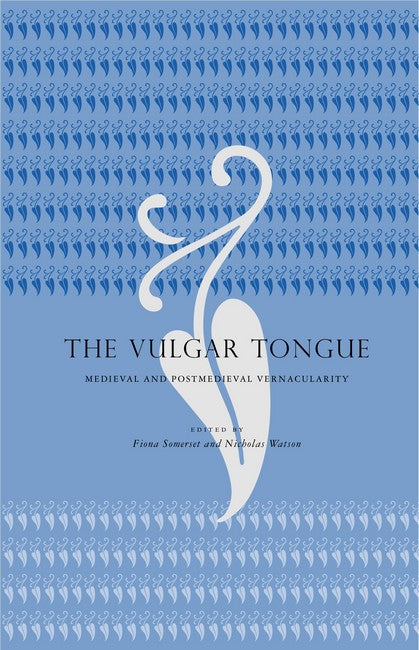Contents
Preface: On "Vernacular"
Acknowledgments
Introduction: King Solomon’s Tablets
Nicholas Watson
Part I: 1100–1300: The Evangelical Vernacular
1. Using the Ormulum to Redefine Vernacularity
Meg Worley
2. Talking the Talk: Access to the Vernacular in Medieval Preaching
Claire M. Waters
3. The Language of Conversion: Ramon Llull’s Art as a Vernacular
Harvey Hames
4. Mechthild von Magdeburg: Gender and the "Unlearned Tongue"
Sara S. Poor
Part II: 1300–1500: Vernacular Textualities
5. Creating a Masculine Vernacular: The Strategy of Misogyny in Late Medieval French Texts
Gretchen V. Angelo
6. Teaching Philosophy at School and Court: Vulgarization and Translation
Charles F. Briggs
7. Vernacular Textualities in Fourteenth-Century Florence
William Robins
8. "Moult Bien Parloit et Lisoit le Franchois," or Did Richard II Read with a Picard Accent?
Andrew Taylor
9. Professionalizing Translation at the Turn of the Fifteenth Century: Ullerston’s Determinacio, Arundel’s Constitutiones
Fiona Somerset
Part III: 1500–2000: Making the Mother Tongues
10. Purity and the Language of the Court in the Late-Sixteenth- and Seventeenth-Century Netherlands
Jeroen Jansen
11. The Politics of ABCs: "Language Wars" and Literary Vernacularization Among the Serbs and Romanians of Austria-Hungary, 1780–1870
Jack Fairey
12. "Indian Shakespeare" and the Politics of Language in Colonial India
Nandi Bhatia
13. Poets Laureate and the Language of Slaves: Petrarch, Chaucer, and Langston Hughes
Larry Scanlon
Further Reading
About the Contributors
Index

